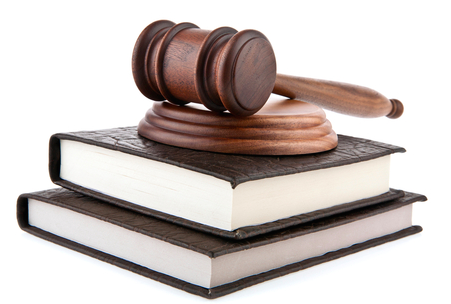Legal
US Court Convicts Lawyer For $14 Million Tax Fraud

A lawyer who advised a wealthy family on how to defraud the IRS of $14 million via Swiss bank accounts has been convicted.
A UK-born lawyer, licensed to practice in New York, has been
convicted by a jury of advising an American family how to cheat
the Internal
Revenue Service from around $14 million via Swiss bank
accounts.
Michael Little was convicted earlier this month by a federal jury
on charges of taking part in the tax fraud scheme that lasted 11
years. As well as using offshore Swiss accounts, Little failed to
file his own personal tax returns and helped to file false
returns, the Department of
Justice said in a recent statement. The verdict followed a
three-week trial before US District Judge P Kevin
Castel.
Sentencing of Little is due to take place on September 6, 2018,
the DoJ said.
“Michael Little assisted an American family in evading taxes on
$14 million in undeclared offshore inheritance money. Over
the course of a decade, he helped the family illegally funnel
millions of dollars of that inheritance from Swiss bank accounts
into the United States, in order to avoid IRS detection,” US
Attorney Geoffrey S Berman said.
The case throws light on the sort of activities that
authorities have tried to stamp out in recent years, intensifying
after the 2008 financial crisis. Swiss banks such as UBS and
Julius Baer have ceased to provide Americans with offshore bank
accounts. The US and Switzerland have signed a pact under which
dozens of Swiss institutions paid financial settlements to the
DoJ in exchange for non-prosecution agreements. In 2010, the US
enacted the Foreign Account Taxation Compliance Act to catch
expat US tax evaders.
Explaining the case, the DoJ said Little was a was a business
associate of the patriarch of the Seggerman family, an American
family residing in the US. In August 2001, after the
patriarch died, Little and a lawyer from Switzerland met with his
widow and adult children at a hotel in Manhattan, and advised
them that the patriarch had left them approximately $14 million
in overseas accounts that had never been declared to US taxing
authorities.
Little and this Swiss lawyer also advised the various family
members on steps they could take to continue hiding these assets
from the IRS. For example, Little discussed how to bring money
into the US from Swiss accounts, without being detected by the
IRS. Ploys included disguising money transfers as being linked to
sales of artwork and jewelry.
In or about 2010, Little became aware the IRS had launched a
criminal probe into his actions. To cover his tracks, he told a
tax attorney and an accounting firm that had prepared the widow’s
individual tax returns. Little gave false information to the tax
lawyer and the accounting firm about the nature of the transfers
from the Swiss account to the US, saying they represented “pure
gifts” from a non-US person who had “absolutely no relationship”
to the widow.
Little had been a lawful permanent resident of the US since 1972.